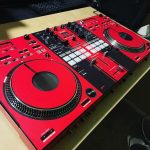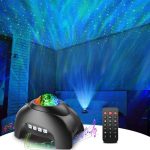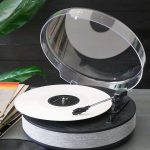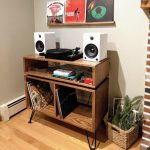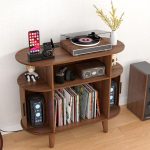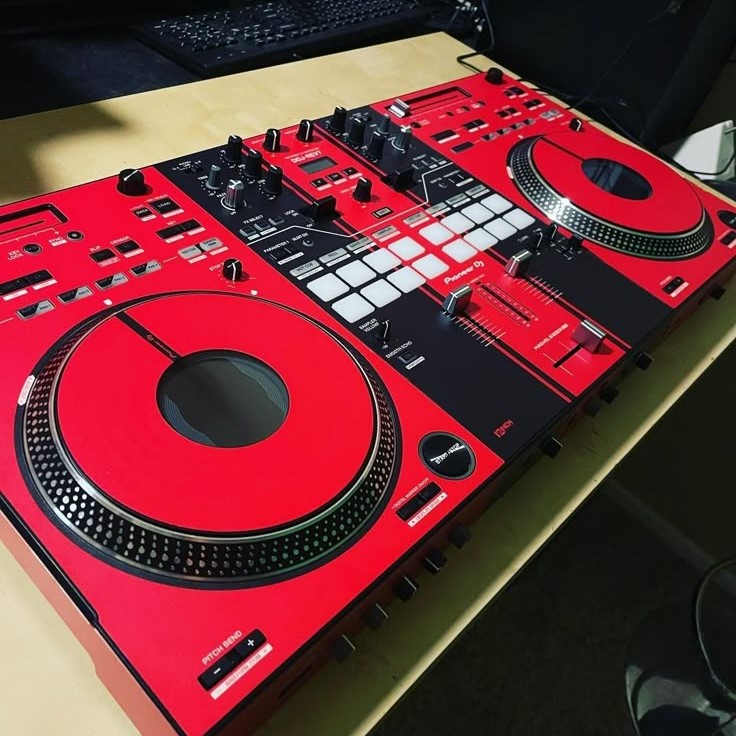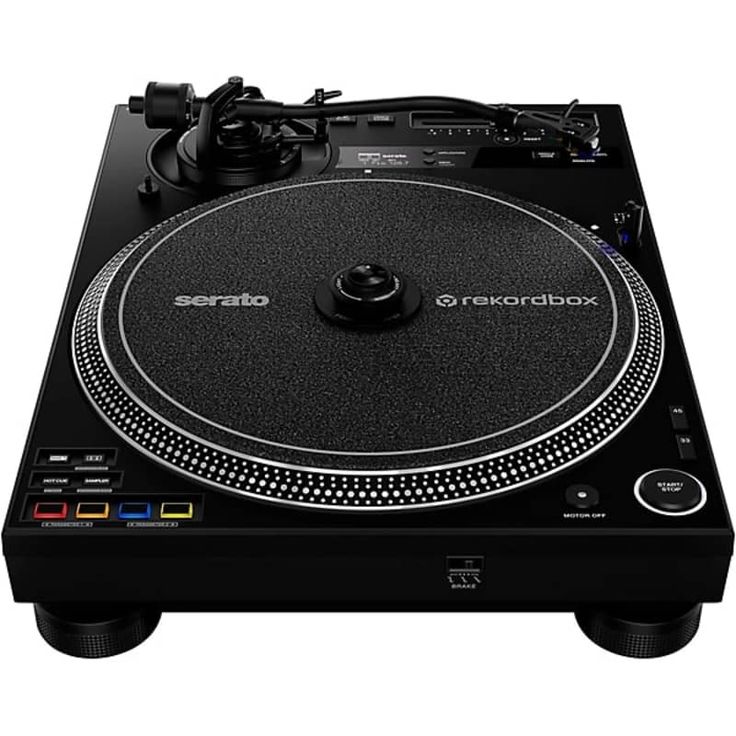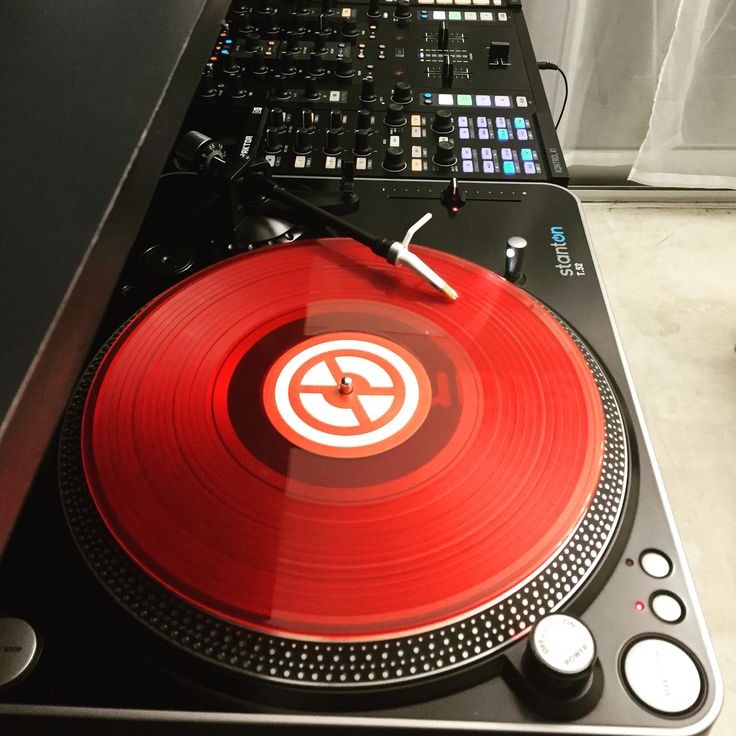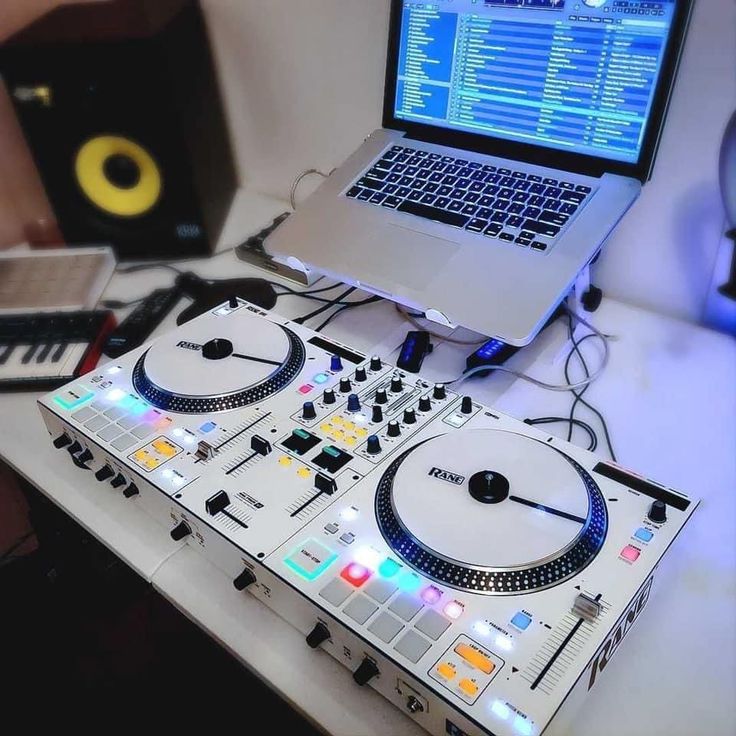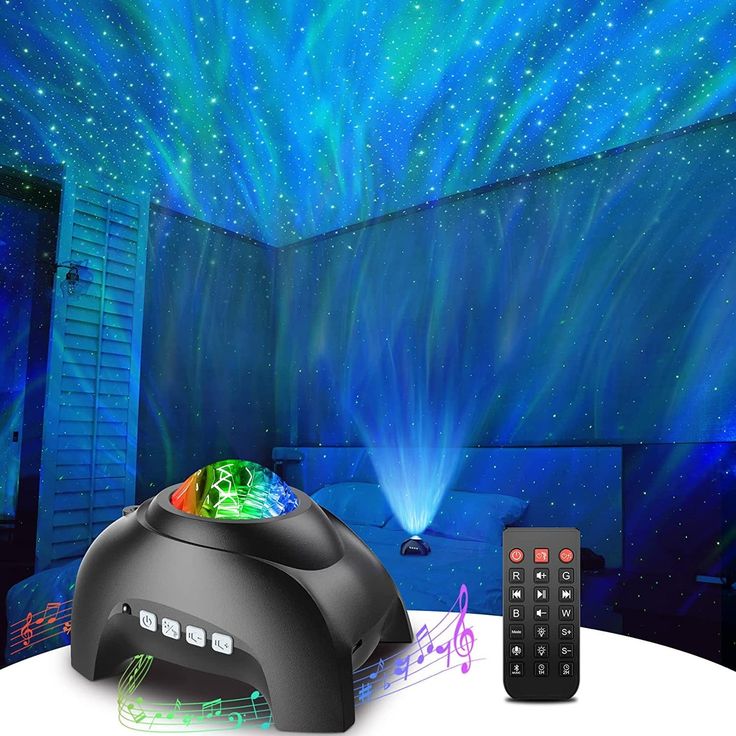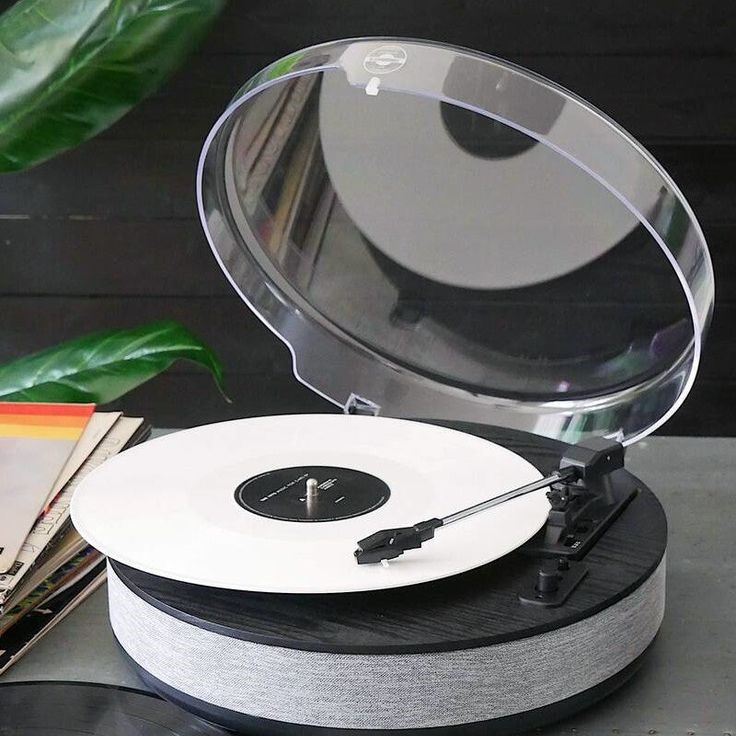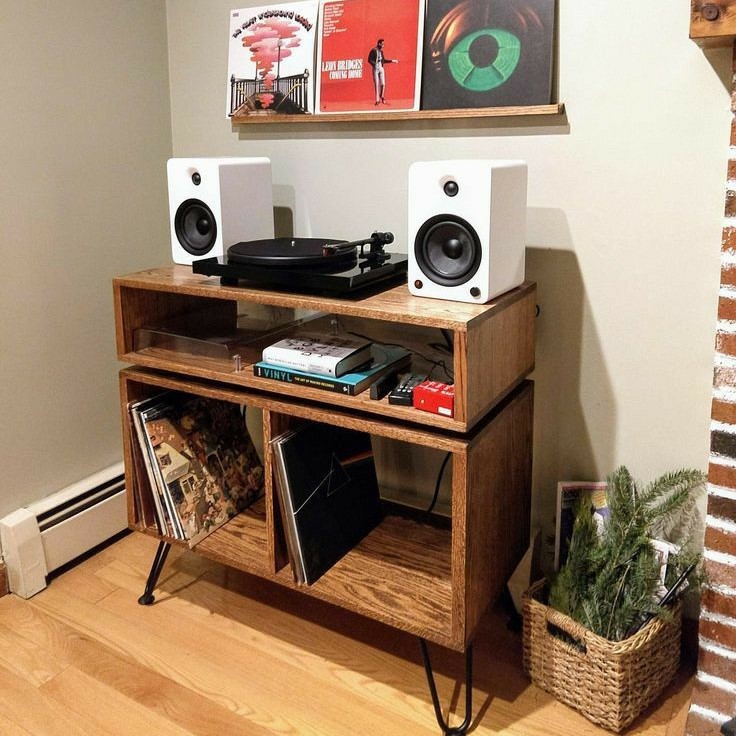Introduction
DJ turntable is essential tools for every DJ, both beginners and professionals alike. They allow DJs to mix, scratch, and manipulate music tracks with precision. Understanding their functionality and history can help you choose the right one.
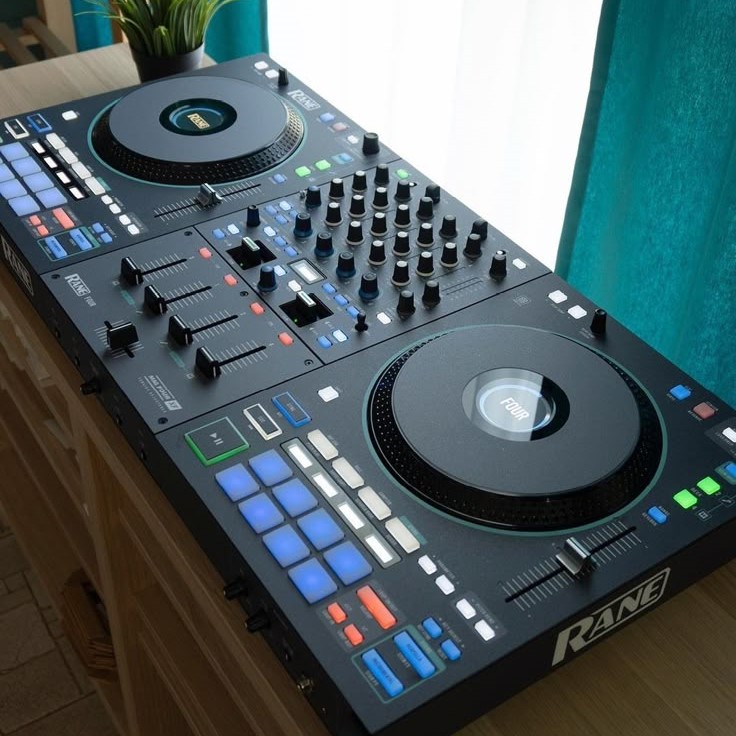
What is a DJ Turntable?
A DJ turntable is a device designed to play vinyl records. Unlike standard record players, DJ turntables are built for live performance and creativity. They include features like adjustable pitch control and robust platters for mixing and scratching. DJ turntables are a staple in hip-hop, electronic, and other genres that require seamless transitions and effects.
Turntables usually come in direct drive or belt drive models, each with its own benefits. Modern DJ turntables also integrate digital technology. These advancements enhance convenience and make them versatile for today’s DJs.
History and Evolution of Turntables in DJing
The journey of DJ turntables began in the mid-20th century. Early models were simple devices for playing records. In the 1970s, DJs started using turntables creatively to mix and scratch music. Brands like Technics introduced legendary models like the SL-1200, setting new standards.
The 1980s and 1990s saw innovations like pitch controls and higher torque motors. These features gave DJs more control during live performances. In recent years, digital turntables and USB turntables have become popular. They merge traditional vinyl playback with modern software compatibility, offering endless possibilities for creativity.
Understanding their history highlights how they have evolved to meet DJs’ changing needs. This knowledge will guide you in selecting the perfect DJ turntable for your style and preferences.
Types of DJ Turntables
Direct Drive vs. Belt Drive Turntables
DJ turntables come in two main types: direct drive and belt drive. Direct drive turntables are often preferred by DJs. They offer strong torque and quick start-up times. This makes them ideal for scratching and mixing music. Their design connects the motor directly to the platter, improving reliability.
Belt drive turntables, on the other hand, have a quieter motor. The motor is linked to the platter using a belt. These turntables are better for home use or casual listening. However, they lack the torque needed for more advanced DJ techniques. Understanding the differences helps in picking the right model for your needs.
Analog vs. Digital Turntables
Analog and digital turntables cater to different preferences. They deliver classic sound quality that many DJs find rich and authentic. These turntables are ideal for DJs who love the feel of physical records and old-school DJing.
Digital turntables, however, integrate modern technology. They often allow DJs to use digital music files with vinyl-like controls. Many digital turntables work with DJ software to expand creative possibilities. Choosing between analog and digital depends on your style and music format preference.
USB Turntables and Their Features
USB turntables are a modern variant of digital turntables. They allow DJs to connect directly to computers. This feature lets you digitize vinyl collections easily. USB turntables are also compatible with most DJ software. This makes them versatile tools for both home studios and live events.
Many USB turntables come with additional features like pitch control and high-torque motors. These features make them a great option for DJs and vinyl enthusiasts alike. If you want flexibility and advanced capabilities, USB turntables are worth considering.
Key Features to Consider
When choosing a DJ turntable, certain features stand out as crucial. These features impact performance, durability, and ease of use. Prioritizing these key aspects ensures you get the most suitable turntable for your DJ needs.
Platter Quality and Durability
The platter is a vital component of any DJ turntable. A high-quality platter enhances stability and reduces vibrations during playback. Sturdy platters allow smooth mixing and scratching, especially in demanding live performances. Materials like aluminum and heavy-duty plastic improve durability and extend the turntable’s lifespan. Focus on platters with consistent rotation and reliable construction for optimal results.
Motor Performance and Torque
The motor determines how well the turntable operates during performances. High-torque motors allow faster start-up and precise control for techniques like scratching. Direct drive turntables usually offer superior torque, making them ideal for DJs. A reliable motor ensures consistent rotation speed and avoids performance disruptions. This feature becomes essential if you perform frequently or require exceptional control.
Tonearm Design and Adjustment Options
The tonearm plays a key role in maintaining sound quality and tracking records accurately. Look for tonearms with lightweight yet robust construction. Adjustable tonearms provide maximum flexibility and ensure compatibility with various cartridges. Anti-skate functionality can prevent wear on records and improve tracking precision. Choose a turntable with tonearm designs suitable for your preferred DJing style.
Compatibility with DJ Software
Modern DJs often need software integration for creative possibilities. Digital and USB turntables typically work well with popular DJ software. This compatibility allows seamless mixing, sound effects, and vinyl emulation with ease. Check if the turntable supports software you already use or plan to explore. Software compatibility will also streamline workflow and expand your creative options.
Popular Brands and Models
Exploring popular DJ turntable brands and their top models can guide your shopping process. Renowned brands offer quality, reliability, and innovative features for DJs of all skill levels.
Industry-Leading Brands in DJ Turntables
Many brands dominate the DJ turntable market with their outstanding products. Technics is a legendary name, especially their SL-1200 series, loved for durability and performance. Pioneer DJ produces cutting-edge turntables, integrating excellent analog and digital features. Numark is popular for versatile turntables with USB connectivity and modern designs. Reloop is another trusted brand, offering professional-grade turntables with high-torque motors. Identifying top brands ensures you invest in proven quality and reliability.
Features of Top Seller Models
Iconic turntable models come with features that make them stand out. Technics SL-1200 remains a favorite for its robust design and precise performance. Pioneer DJ PLX-1000 offers high torque and advanced controls for professional use. Numark’s PT01 Scratch combines affordability and portability for scratch enthusiasts. Reloop RP-7000 MK2 delivers a direct-drive system perfect for both clubs and studios. Think about the features you need to match your DJ style and preferences.
Maintenance and Setup Tips
To ensure your DJ turntable performs at its best, proper maintenance and setup are essential. Following these steps can prolong the lifespan of your equipment and enhance your DJing experience.
Regular Cleaning and Care
Keeping your turntable clean prevents dust and debris from affecting sound quality or performance. Follow these tips:
- Clean the Platter: Wipe down the platter regularly with a soft, lint-free cloth.
- Maintain the Tonearm and Needle: Gently clean the tonearm and needle using a specialized cleaning brush.
- Protect Against Dust: Use a dust cover when the turntable is not in use.
- Check Connections: Ensure all cables and connections remain clean and secure.
- Avoid Liquids Nearby: Keep liquids away from your turntable to prevent accidental spillage.
Regular cleaning ensures smooth playback and protects your vinyl records.
Setting Up Your Turntable for Optimal Performance
A well-set-up turntable ensures consistent sound and efficient operation. Here’s how to optimize it:
- Level the Turntable: Place your turntable on a flat surface to avoid distortions during playback.
- Adjust the Tonearm Balance: Use the counterweight to achieve the correct tracking force for the cartridge.
- Align the Cartridge: Ensure the cartridge is properly aligned to prevent record wear.
- Set Proper Anti-Skate: Adjust the anti-skate setting to balance the tonearm during playback.
- Check Motor Speed Settings: Ensure the correct rotational speed is selected for your records (33? or 45 RPM).
Proper setup enhances both audio quality and equipment longevity.
Troubleshooting Common Turntable Issues
Sometimes, performance issues may arise. Here are common problems and their solutions:
- Platter Doesn’t Spin: Check power supply and start button. Inspect the belt if it’s a belt-drive model.
- Skating Needle: Adjust the anti-skate setting and check the tonearm balance.
- Distorted Sound: Clean the needle and cartridge. Replace a worn-out needle if needed.
- Unusual Noise: Inspect connections and cables for loose or faulty parts.
- Pitch Irregularities: Ensure motor and platter are clean. Adjust pitch controls if available.
Quick troubleshooting reduces downtime and ensures a smooth performance. Proper maintenance and setup play a significant role in enhancing your experience with a DJ turntable.
Budget and Value for Money
When buying a DJ turntable, balancing cost and quality is crucial. Your budget will determine the features and build quality you can afford. Investing wisely ensures you get the best value for your money while meeting your needs.
Setting a Budget for Your Purchase
Establishing a clear budget helps narrow down your options. Here are some tips to set a budget:
- Assess Your Needs: Identify your goals, such as casual use, professional performances, or studio work.
- Understand Price Ranges: Basic turntables start at around $100, while professional models can exceed $1,000.
- Consider Long-Term Value: Spending more upfront can save money by reducing repairs and upgrades later.
- Plan for Accessories: Account for extras like cartridges, slipmats, and DJ software compatibility.
Setting a realistic budget helps prioritize features, ensuring you pick a turntable that suits your needs.
Entry-Level vs. Professional Turntables
DJ turntables are available for all skill levels, from beginners to seasoned pros. Understanding the differences will help you make the right choice:
Entry-Level Turntables:
- Affordability: Entry-level turntables are usually priced between $100 and $300.
- Simplified Features: They offer basic functionalities ideal for learning and casual use.
- Build Quality: Materials may be less durable compared to higher-end models.
- Recommended Usage: Great for beginners or DJs experimenting with vinyl.
Professional Turntables:
- Advanced Performance: High torque, premium platters, and precise tonearms offer superior control.
- Durability: Built with sturdy materials to endure live performances and frequent use.
- Higher Cost: Prices start at $500 and can go beyond $1,500 for top models.
- Recommended Usage: Ideal for DJs who perform live or need studio-grade equipment.
Choosing between entry-level and professional turntables depends on your skill level and budget. Beginners can upgrade over time, while professionals might invest in high-quality models immediately.
By considering your budget and intended use, you can find a DJ turntable that balances cost with long-term value.
Final Thoughts on Choosing the Right Turntable
Matching Your Turntable Choice with Your DJ Needs
Selecting the right DJ turntable depends on your needs, skills, and music style. Beginners may benefit from entry-level models. These models are affordable and simple to operate, making them ideal for learning. Professional DJs require high-performance turntables with advanced features, durability, and precision.
Consider whether you prefer analog or digital setups. Analog turntables offer a classic vinyl experience. On the other hand, digital turntables provide modern flexibility with software compatibility. If live scratching and mixing are your priorities, direct drive turntables are best. However, belt drive options are better suited for casual use or home setups.
Evaluate your DJ style and goals carefully. If you perform at events or clubs, invest in sturdy, reliable models. For studio work or personal enjoyment, features like USB connectivity for recording may matter most. Matching your turntable to your DJing needs ensures the best performance and long-term satisfaction.
Tips for Making the Best Purchase
Here are some final tips to help you choose the perfect DJ turntable:
- Research Thoroughly
Before making a purchase, invest time in researching different turntables. Compare features across various models and brands, understanding what each one offers. Dive into customer reviews to gain insights into real-world performance and satisfaction levels. This comprehensive approach ensures that you are well-informed and able to make a sound decision. - Set a Realistic Budget
Establishing a budget is crucial when selecting a DJ turntable. Aim to balance cost and desired features, ensuring you don’t overspend yet avoid settling for poor-quality options. Remember, quality turntables often come with a higher price tag, but this investment can lead to better sound and longevity. Sticking to a realistic budget helps you get the best value for your money. - Test Before Buying
Whenever possible, visit stores to test turntables in person. This hands-on experience lets you assess comfort levels, build quality, and user-friendliness firsthand. Feeling the turntable’s control can significantly impact your DJing experience, so ensure it feels natural and intuitive. Testing helps you choose equipment that matches your personal preferences and style. - Focus on Key Features
Prioritize essential features such as torque, platter quality, and tonearm adjustment when selecting a turntable. High torque ensures consistent playback speeds, platter quality affects sound stability, and tonearm adjustment impacts tracking precision. Concentrating on these features helps you choose a turntable that meets your performance needs and ensures quality output.
Following these tips helps ensure your money is well spent. The right turntable enhances your DJ experience, whether you’re a beginner or a pro. By understanding your priorities and doing proper research, you’ll make an informed decision. A well-chosen turntable can elevate your music performance and enjoyment.
